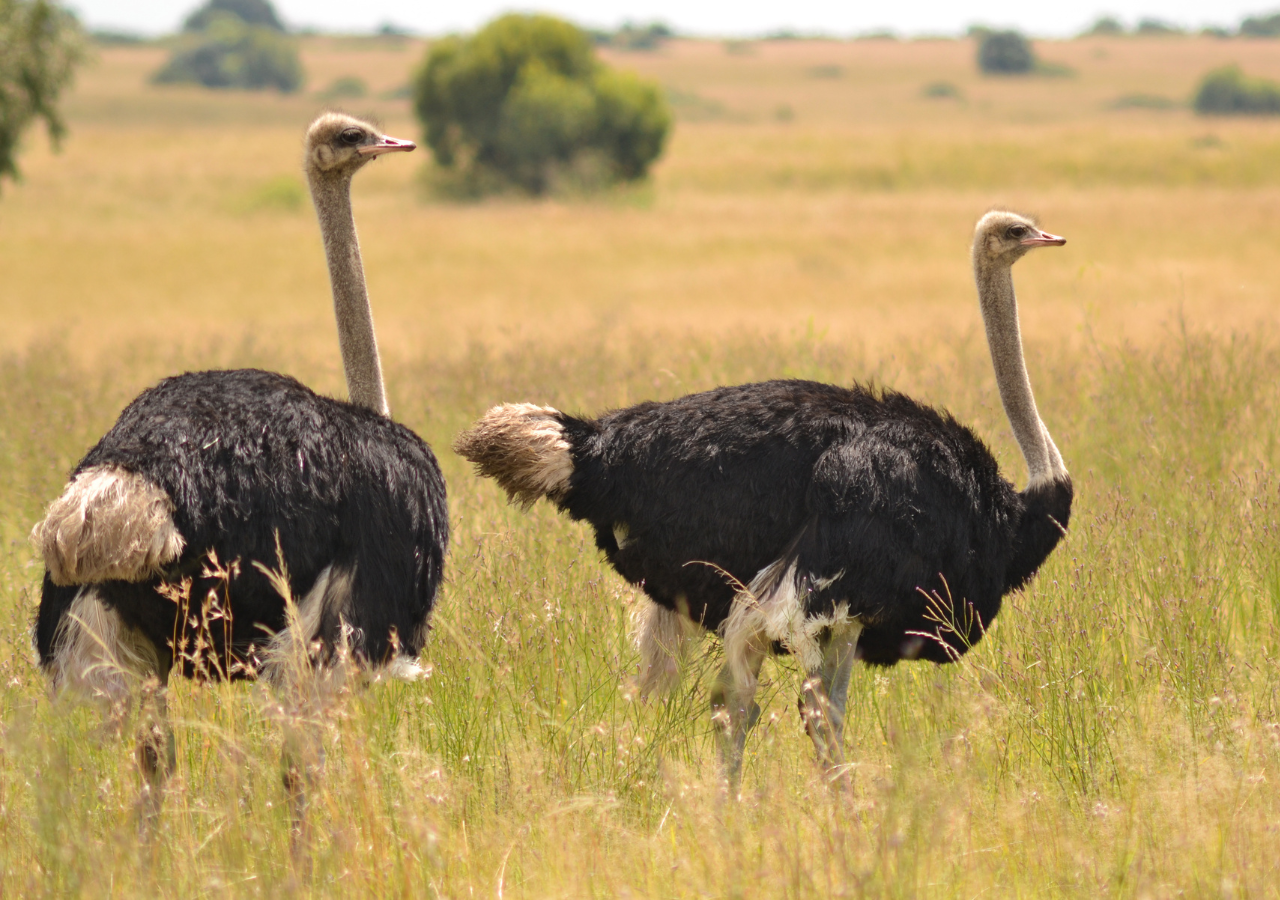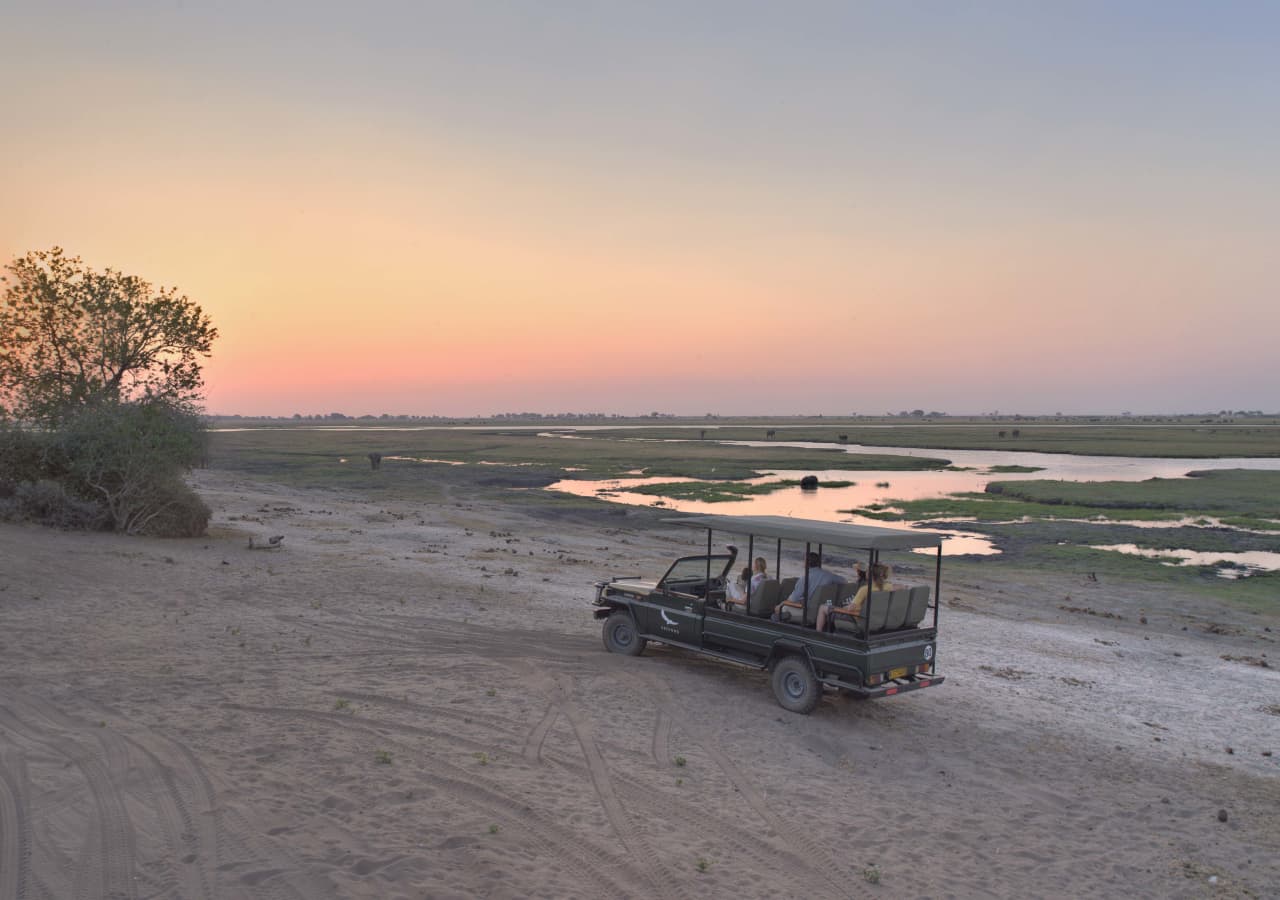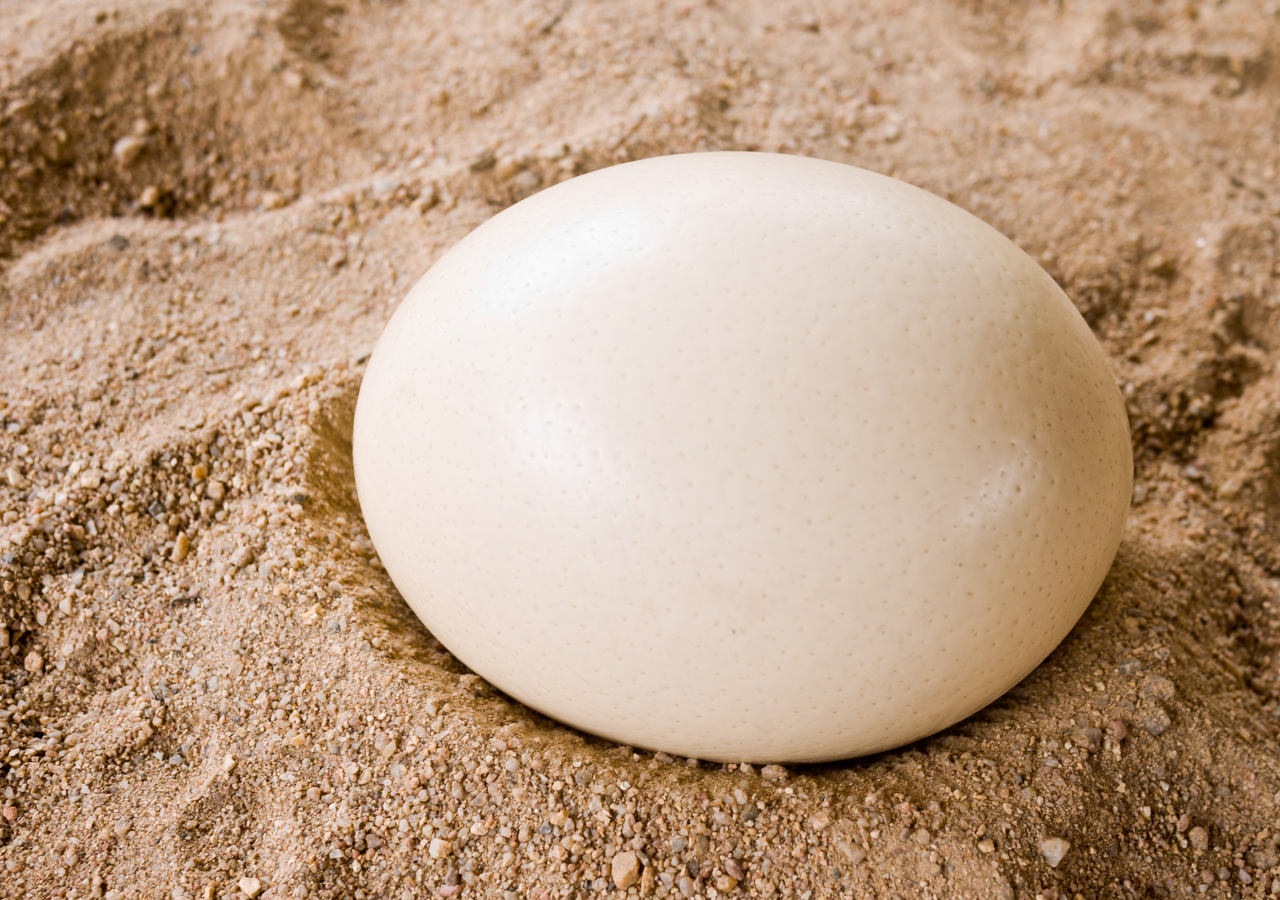
1. World's largest egg
As the world's largest bird, ostriches naturally lay the largest eggs, measuring about 5.9 inches in length, 5.1 inches in width, and weighing between 3-5 pounds.
2. Safari sightings
When you're on an African safari, keep an eye out for the ostrich! They roam freely in places like Tanzania's Serengeti and South Africa's Kruger National Park. You might see them grazing, running, or even dancing!

3. Community effort
After copulation the male creates what is known as a communal pit; 12–24 inches deep and almost 10ft wide. The dominant female then lays her eggs first before being followed by others in the group.
4. Mother's intuition
Despite a pit full of seemingly indistinguishable eggs, each female ostrich can distinctively identify her own. The hens are prolific layers, producing 40-100 eggs annually, averaging an egg every other day from mid-March to mid-August.
5. Teamwork
Males and females work together to incubate the eggs. Males take the night shift while females keep the egg safe during the day. This isn't just so the ladies can get their beauty sleep; in their natural African habitat, a female's brown/grey plumage blends brilliantly with the sandy terrain while the male's jet black feathers render them practically invisible during the night, providing perfect camouflage and protection.
6. Survival challenges
Only around 10% of ostrich nests survive. The incubation period lasts around 35-45 days and during that time nests are raided by hungry predators. Despite growing around 9.8 inches a day during the first year of life, this threat continues. However, if they can survive until adulthood an ostrich can live up to around 45 years.
7. Size comparison
For perspective, the tiny hummingbee lays the smallest bird egg. Compared to one ostrich egg, you could fit approximately 4700 hummingbee eggs inside!

8. Eggshell
The colour of an ostrich egg varies only slightly, from cream to pearl white, the shells of which are extremely strong. They are capable of supporting the weight of an adult man and can be 1.5 mm thick.
9. Nutritional powerhouse
The eggs are rich in nutritional value and house an incredible 2,000 calories. Vitamins A and E and thiamine are found in the eggs which are predominantly comprised of proteins and fats. A very healthy breakfast if you're ever stuck for a meal in the African wilderness!
10. Cooking time
To hard boil an ostrich egg it would take you around 90 minutes. Soft boiling will take slightly less time at 50 minutes. It is big enough to make an omelette for 15 people!




